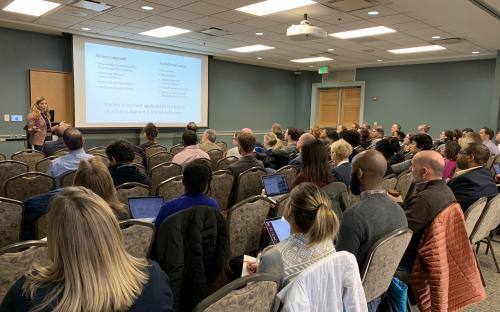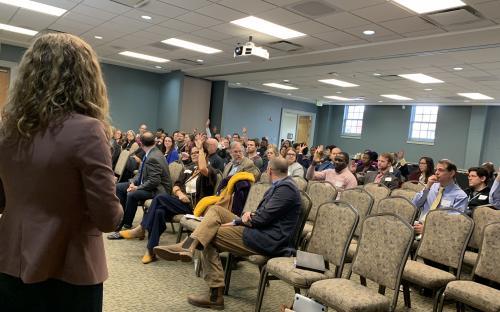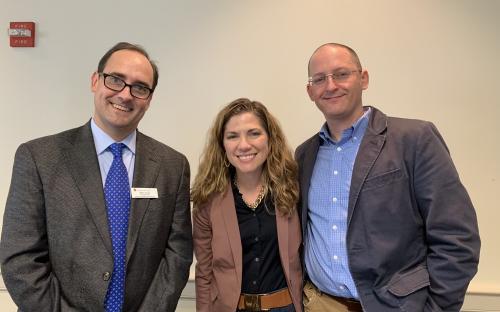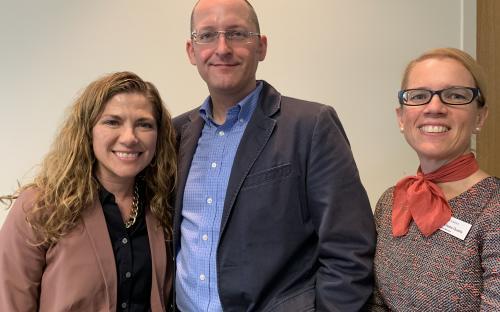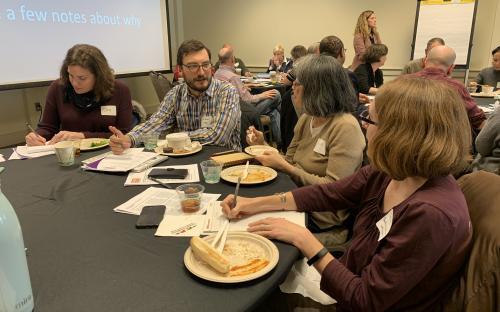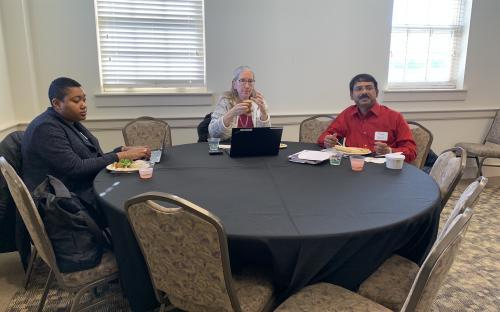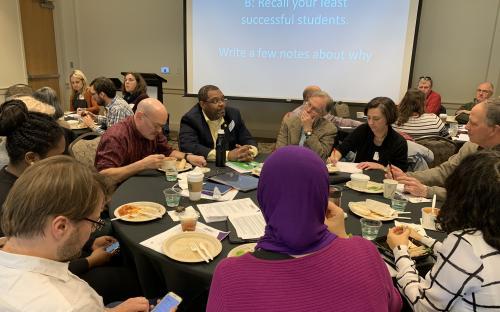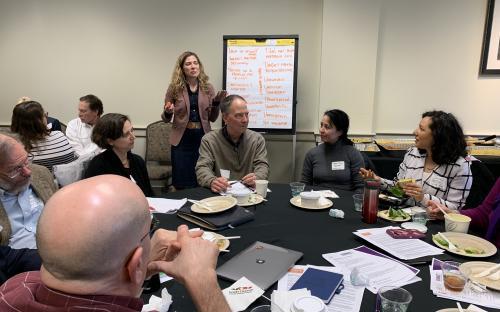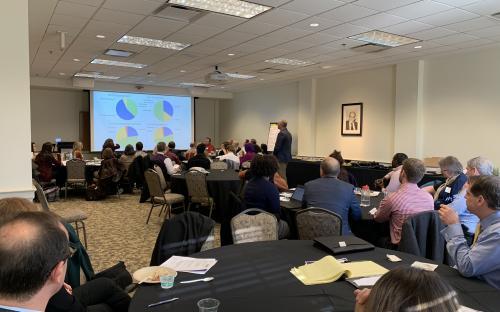In December, the University of Maryland's Graduate School hosted the first-ever East Coast Holistic Review Institute (HRI). Led by Drs. Julie Posselt and Casey Miller, the day included a morning public session followed by an afternoon of faculty training. Over 70 people attended for the morning plenary, with 42 faculty joining the afternoon session. Participants came from Idaho, Alabama, Virginia, Ohio, and Massachusetts. Local institutions/organizations represented included UMD, the Johns Hopkins University, George Mason University, Hood College, Howard University, University of Maryland, Baltimore, Towson University, the University of Maryland Eastern Shore, University of Maryland Center for Environmental Science, the American Chemical Society, and the American Astronomical Society.
Dr. Ryan Long, Associate Dean at the Graduate School remarked, "Drs. Posselt and Miller's dedication to helping the University of Maryland play an important role in advancing the understanding of holistic review and its objectives. This was their second visit to our campus in two years. The quality of their research and their level of renown certainly helped us attract the high number of participants to this event, which was the first multi-institution holistic review event on the East Coast. Holistic review aims to improve the diversity of graduate student populations and to help ensure that those who enroll stay in their programs and succeed. This Institute attests to the Graduate School's commitment to helping faculty and staff here and at other institutions consider how the admissions process can increase diversity and help students perform well in their academic programs." In concert with Long, Jeffrey Franke, Assistant Dean and Anna De Cheke Qualls represented the Graduate School at the event.
As her other HRI colleagues, Dr. Leslie Baker, an Associate Professor of Geochemistry at the University of Idaho, came to the Institute because diversity remains a challenge in her disciplinary area. She was interested in ways that her department could recruit and retain a more diverse population of students and, eventually, faculty. Baker hoped to learn some specific ways her program could change its graduate recruiting and admissions process to be more welcoming to underrepresented students.
Upon returning to Idaho, she shared her findings with the Dean of the College of Science and fellow Chairs, and proposed that departments revamp graduate admissions strategies in hopes of increasing the diversity of their overall graduate population. Most of the participants in HRI did very much the same. "It so happens that the University of Idaho just tasked colleges with diversity-related goals or initiatives to work on immediately. I have proposed that our college choose this one and make use of the information I brought back from the Institute. I am also going to present some suggested changes to our Geological Sciences departmental graduate program application form to my faculty for discussion and, hopefully, adoption," remarks Baker.
As next steps, the Graduate School will offer a half-day symposium in the spring of 2019 to share departmental best practices directly with fellow graduate programs. The English and Astronomy Departments, through Drs. Kellie Robertson, Andy Harris, and Stuart Vogel, will headline the program. In addition, there will be continued collaboration with other institutions/organizations through resource sharing and partnerships.
(Photo credit: Anna De Cheke Qualls)
